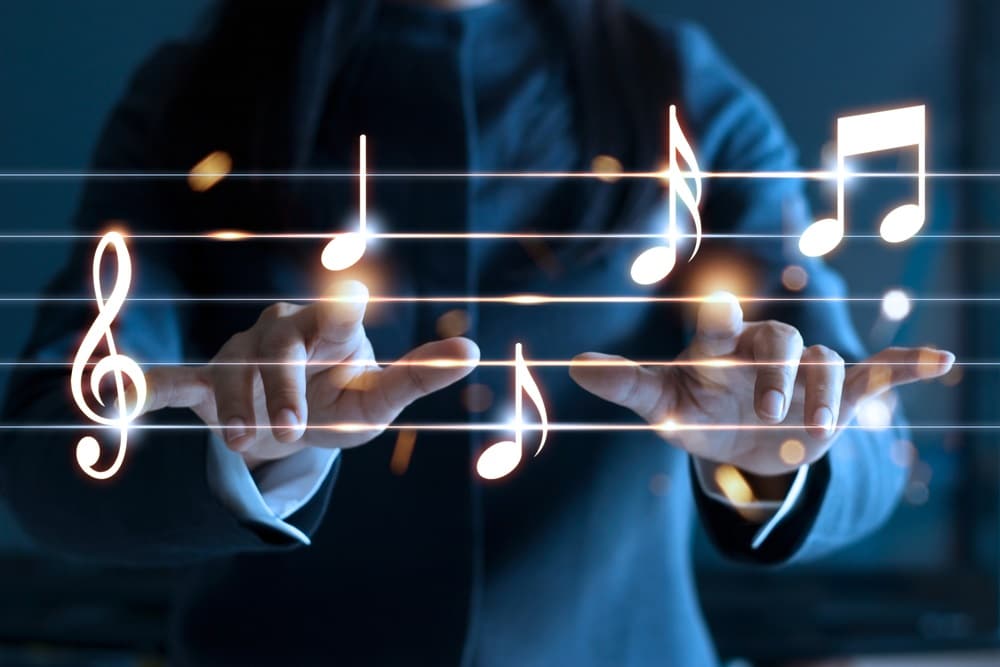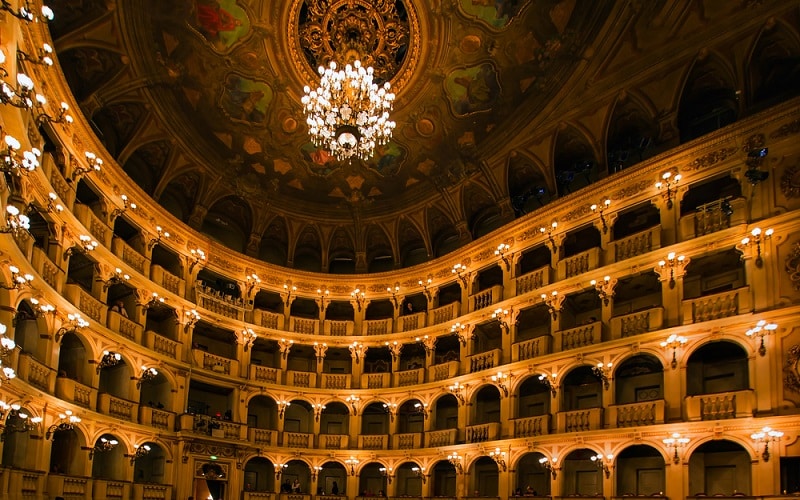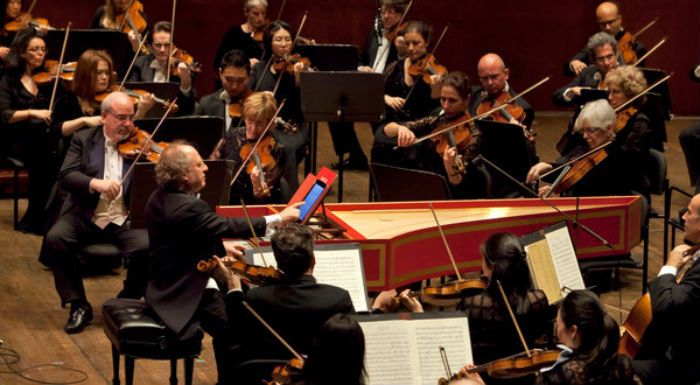
This is a particularly interesting title as we enter uncharted territories with the rise of AI across The Arts. Some greet this revolution with eager anticipation whilst others are more cautious.
Already we have heard examples of AI-generated compositions from different genres, some with a degree of credibility, some closer to a badly assembled Garageband loop project.
What we can be certain about is that the input and influence of AI in the Art world is here to stay and will undoubtedly have an impact on how Classical music travels into the coming decades.
I mention AI as its influence on the generation of classical compositions is already occurring. We, as composers, have been making creative use of computing tools for several decades.
Much of the commercial music available today could not be made without computer technology. Now the tables are turning towards a new music created by increasingly sophisticated AI programs that will perhaps need less and less human input as they learn to compose Classical music of the future.
21st Century Classical Music: The Future
Even if AI-generated music becomes convincing enough to fool the listener into thinking it was composed by a human being, I doubt whether it will ever fully replace it.
If it does, this is likely to be many decades into the future. (I could be wrong). What also needs to be remembered is the Classical music from the past. Some pieces have endured for hundreds of years.
They’ve embedded themselves into the psyches of countless millions of people, and I don’t imagine for a moment that they will be gracefully retired into cultural oblivion.
Instead, I would suggest, that the new will continue to cohabit peacefully with the old and indeed be built upon by emerging composers as it has been for centuries.
The Current State of Classical Music
Sometimes, I’m asked whether Classical music exists today. Often the question is slightly ill-conceived as the individual is thinking that Classical music began and ended with WA Mozart, ignoring the fact that Classical music refers to a far wider spectrum of music that is very much alive today.
And here is the answer to that question: Classical music exists today both in its older forms from eras past and in its contemporary state. You need only take a glance at the current Prom’s Concerts that take place each summer at The Royal Albert Hall, London to realize that Classical music is alive and pulsing.
In this massive celebration of music, you can discover all manner of new Classical pieces. There are many works by established composers from across the world alongside new commissions from less well-known contemporary creatives. It offers an incredible selection of music and illustrates just how vital classical music is to current culture.
Performance Trends and Popularity of Classical Music
According, for example, to Bachtrack.com, there were more than 27,000 listed performances of classical music including 9,000 opera performances and 14,000 concerts.
The music of the 20th Century composers is of increasing popularity with Maurice Ravel towards the top of the charts. Equally, Dimitri Shostakovich’s compositions are receiving considerable attention.
Of the contemporary living classical composers, Avro Pärt, John Williams, John Adams, and Thomas Ades hold the top four slots. Pärt alone has enjoyed more than 182 performances of his works in 2022.
In the world of contemporary opera, Jonathan Dove’s eminently adored work Flight was the most performed opera of a living composer in 2022 across the UK and the US.
Streaming and Physical Media
Streaming music has become habitual for millions of listeners. It doesn’t always generate a good level of income for composers or artists but does offer a platform for their work.
The streaming of classical music continues to be extremely attractive with Italian Composer/Pianist Ludovico Einaudi at the very pinnacle of the streaming statistics. In the UK alone, Einaudi accounts for one in twelve of the classical streams.
Owning classical music on CD or vinyl remains undiminished despite the taste for streaming services. In part, this may be down to poor categorization of classical music on many streaming platforms as well as the availability of a suitably diverse selection of performances.
Sales of CDs and vinyl continue to be strong in the classical market, often bucking the trends of popular culture recordings. Across the music world, sales in 2023 are up around 9% generating a revenue of around $26.2 billion.
Classical Music’s Resilience and Future
Popular music culture is thriving and so it seems is Classical music. Thanks to the global opportunities that streaming offers, Classical music reaches a wider audience than ever and it continues to expand.
Sales of physical copies of Classical music are also strong indicating that Classical music strides forward into the future with confidence and determination that may be surprising to many.
Post-pandemic the return to the possibilities of live performances alongside the sales and streaming of Classical music seem to present a very positive picture for the coming years. It gives a clear indication that despite the occasional dissenting voice, Classical music remains a vital part of contemporary life.
The Growing Popularity Among Younger Audiences
In 2020, the Royal Philharmonic Orchestra undertook research into the streaming service Deezer. What it showed was that during the pandemic, orchestral music had grown in popularity amongst the under 35’s with streaming up by 17% in that year alone.
Some of this increasing popularity is attributed to better categorization and dedicated Classical streaming services. This makes it easier to discover Classical music and attract new listeners.
A Bright Future
I mention this research as there is a feeling that Classical music’s continued popularity is due to a certain age group of the population who doggedly devote themselves to a dying genre of music. Clearly, this isn’t the case. There’s money to be made in the provision of these services and an audience ready to receive it.
Classical music, I believe, has a bright and positive place in the future. New works are being commissioned and composed each day. Numerous schemes, grants, and initiatives are available notably in Europe and the US that facilitate the commissioning of new Classical music and ensure performances and recordings are made.
In Conclusion
The Classical music of the past thousand years that underpins Western culture will comfortably go into the future hand in hand with the new. Maybe with the increasing advances in AI, an even more exciting type of classical music will evolve that draws on cultural history and radical innovation in equal measure. We will hear.



